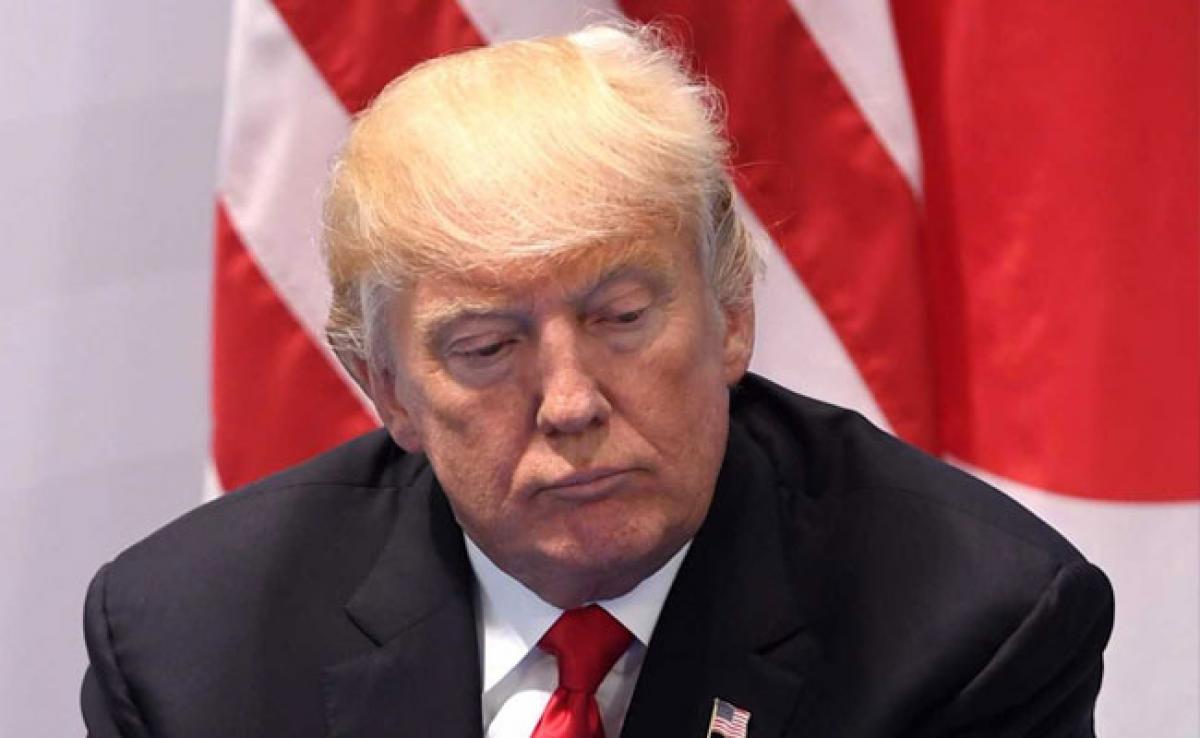Live
- ‘Get Set, Grow Summit 2024’ Focuses on Digital Detox for Families
- Stokes motivates his team to put in extra effort, says England pacer Potts
- From overcoming setbacks to leading India in U19 Women’s Asia Cup, Niki Prasad's amazing journey
- Driving Enterprise Security: Inside Venkata Reddy Thummala’s Leadership Journey
- Constitution debate: PM Modi hails 'Nari Shakti'; makes strong pitch for 'United Bharat’
- Abhijeet Bhardwaj: Revolutionizing Enterprise Analytics with Innovation and Expertise
- Bihar: Inquiry initiated against principal who went to buy veggies during school hours
- Press Sri Lankan Prez for release of Indian fishermen: TN Cong MP to EAM Jaishankar
- TN: DMK postpones executive meet due to heavy rains & Parliament session
- Porous silicon oxide electrodes can fix durability issues in batteries: Researchers
Just In

The US House of Representatives voted overwhelmingly on Tuesday to slap new sanctions on Russia, and force President Donald Trump to obtain lawmakers\' permission before easing any sanctions on Moscow, in a rare rebuke of the Republican in the White House.
The US House of Representatives voted overwhelmingly on Tuesday to slap new sanctions on Russia, and force President Donald Trump to obtain lawmakers' permission before easing any sanctions on Moscow, in a rare rebuke of the Republican in the White House.
House members backed the measure, which also imposes sanctions on Iran and North Korea, by a near unanimous margin of 419-3, with strong support from Trump's fellow Republicans as well as Democrats, despite objections from Trump, who wanted more control over the ability to impose sanctions.
The sanctions bill coincided with lawmakers taking steps to show they are willing to push hard as they investigate possible meddling by Russia in the 2016 presidential election and potential collusion by Republican Trump's campaign.
Moscow has denied it worked to influence the election in the Republican candidate's favor, and Trump has denied his campaign colluded.
House Speaker Paul Ryan called the bill "one of the most expansive sanctions packages in history."
Ed Royce, Republican chairman of the House Foreign Affairs Committee, said the three countries threaten US interests, and said the North Korea restrictions were important given Pyongyang's repeated missile tests.
House members added the North Korea sanctions package, which passed the House by 419-1 in May, to the Iran and Russia bill after becoming frustrated with the Senate's failure to advance the measure.
The combined sanctions bill must pass the Senate before it can be sent to the White House for Trump to sign into law or veto. The latest version of the legislation has run into objections from some Senate members, who are unhappy that the House added new sanctions on North Korea after holding up the measure for more than a month.
Senate leaders have not said when they might consider the House bill, and said that, with the Senate mired in debate over efforts to overhaul the US healthcare system, they did not know whether it would come up before lawmakers leave Washington for their summer recess.
The White House said the president had not yet decided whether he would sign the measure if it reaches his desk. Rejecting the bill - which would potentially hamper his hopes of pursuing improved relations with Moscow - would carry a risk that his veto could be overridden by lawmakers.
Senator Bob Corker, the Republican chairman of the Senate Foreign Relations Committee, said he was not sure the bill would "fly through" the Senate.
"The only language we agreed to was Iran and Russia. So adding North Korea on, I just don't know how we're going to deal with it yet," Corker told reporters. "The better route would have been to send over what had been agreed to."
The bill has raised concerns in the European Union, where the legislation could result in fines for companies helping Russia build gas pipelines like the 9.5 billion euro ($11.1 billion) Nord Stream 2 project.
INVESTIGATIONS
The intense focus on Russia, involving several congressional probes and a separate investigation by a Justice Department-appointed special counsel, has overshadowed Trump's agenda.
The scrutiny has angered and frustrated the president, who calls the investigations a politically motivated witch hunt fueled by Democrats who cannot accept his upset win in last November's election against Democratic Party candidate Hillary Clinton, a former US secretary of state.
Without offering evidence, Trump lashed out on Twitter on Tuesday about "Ukrainian efforts to sabotage" his presidential campaign in order to aid Clinton. The Ukrainian embassy in Washington denied the accusations.
The Senate Judiciary Committee said on Tuesday it wanted Paul Manafort, a former campaign manager for Trump, to appear at a hearing as part of its investigation.
Also on Tuesday, Trump's son-in-law, Jared Kushner, spent three hours with the House of Representatives intelligence panel, his second straight day on Capitol Hill answering questions about his contacts with Russians during the campaign.
Kushner had a "very productive session" with the House Intelligence Committee, Democratic representative Adam Schiff after the meeting.
Republican representative Michael Conaway said Kushner was "straightforward and forthcoming. He wanted to answer every question that we had."
Kushner, who is now a top aide in Trump's White House, told reporters on Monday he had no part in any Kremlin plot..

© 2024 Hyderabad Media House Limited/The Hans India. All rights reserved. Powered by hocalwire.com







